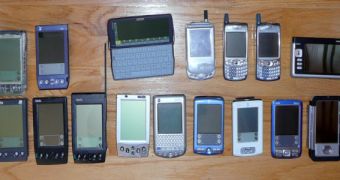Instead of banning cell phones and punishing those who choose to disregard the warning signs, the management of a British school decided to start and fund a nine-month long program in which the cell phones were used to further the educational process. Taking advantage of the large array of accessories that modern phones have, the scientists in charge of the experiment closely monitored the behavior of the children who were enrolled.
They noticed that, by using cell phones, there was an increase in the number of children who accessed on-line teaching resources remotely, as well as in the number of those who used their mobile devices for such tasks as measuring time and calculating mathematical problems. This was all made possible by the fact that almost all new phones are equipped with calendar, calculator, stop watch, video camera, Internet and Bluetooth connections, as well as with MP3 support.
The team also noticed that children found it much easier to learn a foreign language with the help of podcasts they listened to on their smartphones. There were even records of kids recording their teacher reciting a poem, for later use at home. The little ones reported that they understood the point in the teacher's argument better than they did in the past.
The downside to using phones in the classroom is the fact that sending and receiving e-mails, or inputting various queries with the small keyboards can last a very long time, and reading web content can be very cumbersome on phones with small displays.
There is also the issue of financial differences between students, both teachers and psychologists say. Because some children may have wealthier parents, they could benefit from better phones, even from business-oriented ones, which will give them an advantage over kids from poorer families. Plus, during the study, most children were given phones, but, in reality, not every one of them has or can afford such a device.

 14 DAY TRIAL //
14 DAY TRIAL //